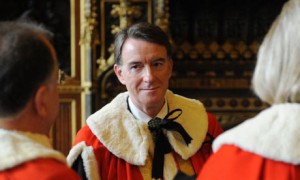
A gradual but inevitable descent into cricket-based loathing and bile.
The Cricket England and Wales (Formerly New England) Report Card
1993. 1996. 1999. Early 2009. Late 2013. Just five of the points in time where England have reached a new low, and they exclude defeats to Ireland and the Netherlands. Are England really at another new low, or is this part of a previous low that now extends to 15 months? Either way, the last week was a bitterly rubbish way to get knocked out of the World Cup and everyone is getting their knickers in a twist about the causes and the consequences. And rightly so. We didn’t get where we are today by wearing non-twisting knickers.
However, we do wonder whether the defeat to Bangladesh and subsequent premature departure from the tournament is a milestone along a longer journey or a terminus to one and the start of another. Last year we began a series of articles which used 10 criteria on which we felt New England needed to focus. These can handily be used as a means to monitoring progress (or otherwise), even if they are mostly intangible and not measurable. The moral of the story so far? We are looking for New England, even if we’re not looking for another girl*.
*Editor Steve is always looking for another girl.
1. Sort out the coaches
England have about a bazillion coaches and that doesn’t include their supporting analysts, therapists and analrapists. Peter Moores has been in his job since April 2014 and to date the only notable progress has been the steady progress of Moeen Ali, Joe Root and Gary Ballance in Test cricket and the continuing reliability of Jos Buttler. These are not insignificant achievements, but are vastly outweighed by the problems England find themselves with. Moores would have a case to make that 11 months is not sufficient time to mould the team as he wishes, but the evidence from him so far is that he is creating the correct environment that he wants and that it is the players who are failing. This, to us, is poppycock. The tactical responsibility must ultimately lie on his shoulders. Moreover, it should be noted that other coaches, with seemingly less credentials on their CV than Moores, have been adept at transforming teams, such as Darren Lehmann.
Meanwhile, David Saker remains in a job (for now). We have been labouring the point for some time now that the England fast bowlers are being #Sakered, and the inevitable outcome must be his removal. Most bowlers who England have picked in the past four years, i.e. since the 2010/11 Ashes victory, have regressed, with the exception of Chris Woakes (and possibly Tim Bresnan, whose departure from the international scene had its root in his injuries). The point is even more alarming when you consider that Saker is regarded as a tactical, rather than technical, coach. When he first came to the role this was helpful, as he created the plans that enabled Stuart Broad and James Anderson (and Bresnan, Steven Finn and Chris Tremlett) to win England umpteen matches and series. But now the strategies look outdated and bizarre, especially throughout this World Cup. Maybe Saker has himself been Sakered.
2. Keep their senior players fit and in form
A big fat fail. England’s side for their first post-World Cup team could (should?) not include anyone who debuted before 2011 – the only vaguely realistic possibles who debuted before then are Broad, James Tredwell, Ravi Bopara, Jonathan Trott, Liam Plunkett and Adil Rashid. Gone is Captain Cook and Captain Morgan should follow. Anderson needs to focus his attention on continuing a Test career, whilst Broad seems to be in another of his long lulls. Bell is certainly not the future, but might just remain in the side just to offer some experience.
At least the Test team is likely to continue with some of these senior players, but this era is already clearly the darkness that followed the brightness of reaching No. 1 in the world.
3. Decide on an approach to the World Cup
Ha ha ha ha. Ha.
4. Attitude
It was supposed to be so easy. We do commend the brave boys for signing autographs – which according to the ECB twitter feed seems to happen all the time – but part of this intangible criterion was meant to include the way that the cricketers acted whilst they performed. Of course, thrashings followed by humiliations don’t create the kind of atmosphere that Russ Abbot would necessarily love, but just about every image we have of the squad in the past month has featured the players scowling. This standard facial expression, allied with the usual soundbites in press conferences and media interviews, leaves supporters with an equally frowned face. The players barely look human.
5. Determine what is expected of fringe players
Here’s an important one. Not since the Flower Spring of 2009 have England had a team so much in transition. A core of youngsters is at least emerging – in the shape of the aforementioned Ali, Ballance, Root and Buttler – but the pathway to selection is now open for all. We actually hope that a good 30 or 40 players are being spoken with by the selectors (selectors who deserve some criticism of their own for the way they handled the winter) to discuss how and why they might – or might not – get picked. From having a very settled 10 back in 2013, England now have opportunities all over the place. No decent county player should feel that their own pathway is blocked, but they need to know what attributes / skills / performances they will need to demonstrate / execute / deliver in order to progress towards England’s door.
6. Ability or potential?
If Moores does depart soon, his own self-appraising spreadsheet will reveal some success in the way that England shifted personnel. The decision to utilise younger players did not create immediate success (far from it), but has at least laid some foundations for the future. The possibility of selecting Monty Panesar or Graham Onions now seems dimmer than a Majid Haq tweet.
7. What is the point in – and purpose of – the Lions?
If ever players needed to graduate from the Lions ready for the challenges of international cricket, the time is now.
8. Help the spinners to help themselves
Notwithstanding the relative success of Moeen Ali, the Swann-shaped void in the team is noticeable. It seems that England knew they wouldn’t pick Tredwell for a live rubber, which says a lot about the county spinners who have barely had a game for England: Stephen Parry, Danny Briggs and Scott Borthwick have five ODIs and 11 T20Is between them (plus one Test for the Durham boy); Rashid hasn’t represented England since 2009. These lads, plus Adam Riley, need to bowl shitloads of overs for their counties and might as well be given the chance to learn in a coloured England shirt now that Tredders is no longer tredding.
9. Remember how to catch
If England had improved in this regard, they certainly regressed again in the opening fixture against Australia. Woakesey’s dropping of Aaron Finch will go down alongside Daffy’s long-hop, Nass’s toss and Harmy’s wide as yet another calamitous opening to a major cricket “contest” in Australia that triggered weeks of debacle upon debacle. (For the record, Andrew Strauss being dismissed by Gentle Ben at Brisbane in 2010 was the exception to this trend.)
10. Buy Giles Clarke a new suit
Clarke is to be replaced as Chairman of the Board. Hurrah! His replacement will be Colin Graves. Boo! Tom Harrison will be new Chief Executive and was given a mandate to carry out a root-and-branch review of English cricket even before the World Cup began. Hurrah! Clarke is going to take the newly-created position of President. Boo! It’s like the disgraced MP gaining a cushy position in the House of Lords.





No Comments
Post a Comment